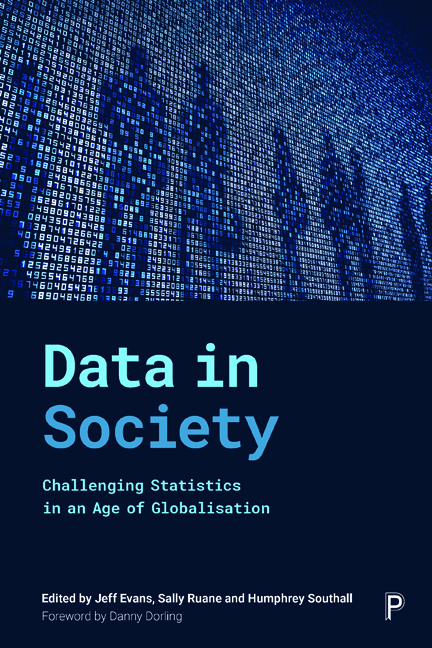Book contents
- Frontmatter
- Contents
- List of figures, tables and boxes
- Notes on contributors
- Foreword
- Preface
- General introduction
- Part I How data are changing
- Part II Counting in a globalised world
- Part III Statistics and the changing role of the state
- Part IV Economic life
- Part V Inequalities in health and wellbeing
- Part VI Advancing social progress through critical statistical literacy
- Epilogue: progressive ways ahead
- Index
Part II - Counting in a globalised world
Published online by Cambridge University Press: 30 April 2022
- Frontmatter
- Contents
- List of figures, tables and boxes
- Notes on contributors
- Foreword
- Preface
- General introduction
- Part I How data are changing
- Part II Counting in a globalised world
- Part III Statistics and the changing role of the state
- Part IV Economic life
- Part V Inequalities in health and wellbeing
- Part VI Advancing social progress through critical statistical literacy
- Epilogue: progressive ways ahead
- Index
Summary
Part II examines selected aspects of the challenges and opportunities posed by globalisation, understood as the increasing interconnectedness of people, institutions and states, in relation to the construction of social statistics. This Part includes chapters on aspects of the largescale movement across the globe of knowledge and information, of people and of financial flows as well as on the challenges of applying data collection methods developed in high-income countries in lowincome settings. Chapter 5 explores the use of statistics by transnational organisations forged out of cross-national political collaboration. Chapter 6 explores methodological challenges associated with surveys particularly when implemented in low-income countries. Chapter 7 examines the statistical challenges posed to nation states and supranational organisations by the displacement of people who become asylum seekers and refugees. And Chapter 8 explores the problems posed for national and international authorities seeking to construct a statistical picture of the financial flows of large transnational corporations whose business strategies maximise tax avoidance.
Globalisation is in part characterised by greater political collaboration through a powerful array of supranational organisations such as the Organisation of Economic Co-operation and Development (OECD) and World Health Organization. These command enormous resources, both financial and skills-related, and have created an impressive infrastructure of statistical knowledge. In particular this allows us to compare indicators across different countries and allow individual countries to monitor their (improving or declining) performance in relation to these indicators. This in turn informs policy discussions within each country as political actors use comparative data to promote and support a particular political goal. Chapter 5 explores the implications of international collaboration and the development of quantitative techniques. Jeff Evans argues that international organisations like the OECD and the EU, increasingly involved in the production of data, function as key agencies for change in education and lifelong learning policy, by promoting human capital approaches and new forms of governance and social regulation. Focusing especially upon PIAAC (Project for the International Assessment of Adult Competencies) and PISA (Project for International Student Assessment), the chapter considers supranational organisations’ uses of conceptual apparatuses, categorisation and measurement systems, and comparative databases related to economic development and especially to education and training. The chapter draws on theoretical resources from critical policy studies to locate these surveys in general policy trends and developing globalisation and raises methodological issues relevant to the valid interpretation of these studies’ results on their own terms.
- Type
- Chapter
- Information
- Data in SocietyChallenging Statistics in an Age of Globalisation, pp. 61 - 64Publisher: Bristol University PressPrint publication year: 2019



